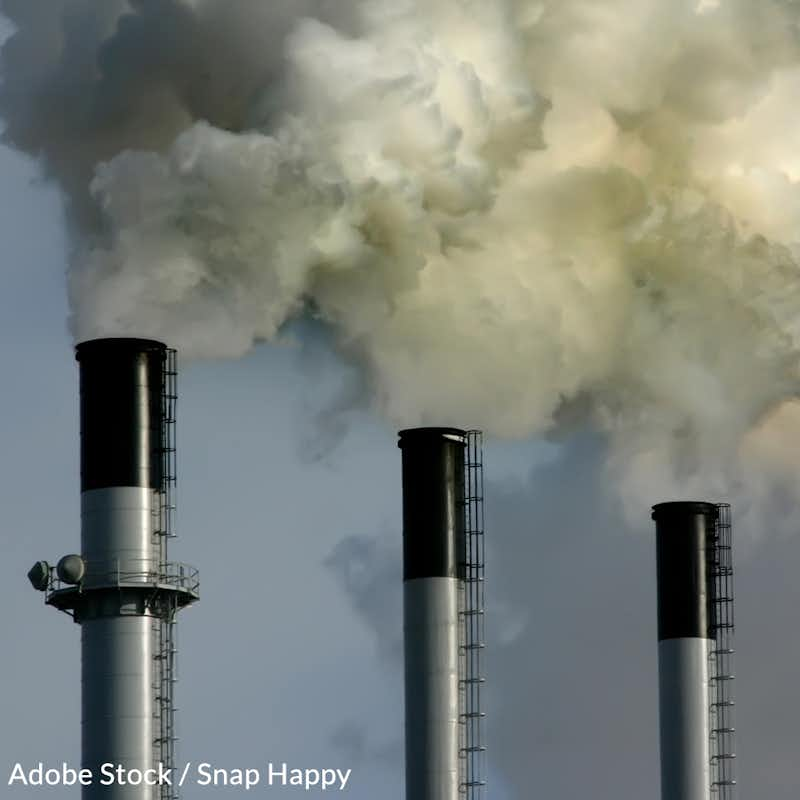Set The Record Straight On Pollution In Georgia
15,630 signatures toward our 50,000 Goal
Sponsor: The Rainforest Site
Don't let utility Southern Company get away with misleading the public about the true effects of pollution.

Georgia-based power utility Southern Company is brazenly shirking standards set by the Environmental Protection Agency (EPA) in order to advance its own profit-motivated interests.
Southern Company spokespeople have gone on record to say that the EPA's mercury standards don't produce any health benefits as well as that reducing pollution does nothing to promote human health. The company is frequently cited as one of the nations most prolific spenders on lobbying and has been one of the most vocal and steadfast utility opponents of environmental regulations and federal action on climate. Since 2010, Southern has spent more than $135 million on lobbying at the federal level, the most of any utility in the country1.
Not coincidentally, Southern Company is one of America's seven worst pollutants — with this information it makes sense as to why the power giant would want to mislead the public about its operations.
Georgia is home to 11 coal-fired power plants which collectively store at least 86 million tons of toxic coal ash2.
Environmental regulators in southern states have so far failed to strengthen state policies to at least match EPA's federal minimum standards for coal ash handling and storage. They have also allowed coal plant water pollution permits to expire and have neglected to integrate new, more protective standards for coal ash pollution into these permits, even though they would provide greater protection for waterways and public health3.
In response to EPA's coal ash rules implemented in 2014, Southern Company subsidiary utility Georgia Power announced plans to "close" its ash pits by placing a liner on top of them and leaving them where they are, threatening ground and surface water, presumably forever. The utility has yet to publicly provide actual closure plans for the majority of its ash ponds2.
Despite Southern's pledge to meet net-zero emissions through carbon offsets by 2050, the company has moved aggressively to invest in new gas, and has worked to preserve coal in its generation mix even as most other utilities race to divest themselves of it. Southern further fought the attempts to close uneconomic and highly polluting coal plants in Mississippi and Georgia4.
It's clear this company's interests are its own profitability, not the heath and wellbeing of Americans.
Sign the petition below and demand Southern Company's CEO come clean about his firm and to do what's right for the future of our planet.
- Daniel Tait, Energy and Policy Institute (30 April 2020), "Southern Company's Lobbying Disclosures Obscure State-Level Information from Investors, Public."
- Southeast Coal Ash, "Georgia General Overview."
- The Southern Alliance for Clean Energy (12 May 2016), "FL, GA, and AL Failing To Properly Regulate Coal Ash."
- Daniel Tait, Energy and Policy Institute (28 May 2020), "Southern Company Pledges Net Zero Emissions by 2050 but Doubles Down on Fossil Fuels."
The Petition:
To the CEO of Southern Company:
As the CEO of one of the highest-polluting power plants in America, you should be ashamed of yourself. Not only is Southern Company one of the worst polluters out there, it's also a dishonest and corrupt operation.
Your spokespeople recently went on record to dispute scientifically-tested findings about pollution and mercury emissions. While the EPA — and most everyone else for that matter — says mercury emissions significantly impair human health and reduced pollution levels show health benefits for humans, your company seems to believe otherwise.
I'm writing to ask that you produce the scientific findings for these claims, or adhere to the EPA, publicly take back your company's comments, and begin working toward a cleaner operation.
You will no doubt be exposed for the deceitful things you are telling the public if you do not stop misleading us and start doing what's right for the health of our planet.
Sincerely,
 Welcome Back! Log In to Continue
Welcome Back! Log In to Continue